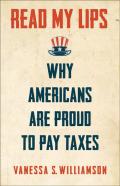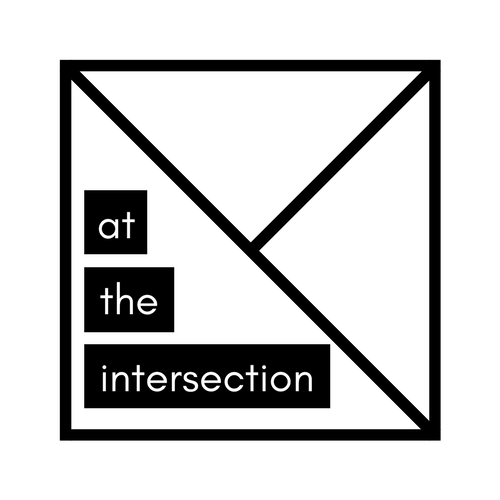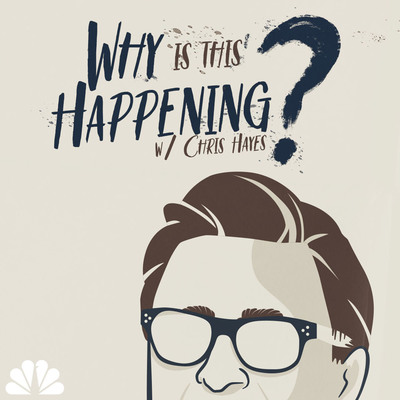Ah, summertime – a season synonymous with sunshine, backyard barbecues and mercury rising. Outside of our day jobs analyzing tax policy, we occasionally take a break from our screens to reconnect with the written and spoken word. However you enjoy your summer downtime – visiting your childhood home, lounging at the lake, planning the ultimate summer road trip – we’ve got your literature covered with the ITEP Summer Reading (and Listening) List, a selection of books and podcasts hand-picked by your friendly neighborhood tax wonks.
On to the picks!
 Radio Free Vermont by Bill McKibben ($22.00 hardcover, Kramer’s Bookstore)
Radio Free Vermont by Bill McKibben ($22.00 hardcover, Kramer’s Bookstore)
This is an entertaining fable about a group of radicals in Vermont looking to secede from the United States. Secession would surely raise some very interesting tax policy questions, but thankfully this book does not dive into them. It’s worth reading for the musical recommendations alone: mostly Memphis soul music from the 1960s and 1970s. – Carl Davis
 Nudge: Improving Decisions About Health, Wealth, and Happiness by Richard Thaler and Cass Sunstein ($17.00 paperback, Kramer’s Bookstore)
Nudge: Improving Decisions About Health, Wealth, and Happiness by Richard Thaler and Cass Sunstein ($17.00 paperback, Kramer’s Bookstore)
For anyone else who is obsessed about dissecting human behavior and economic decision-making, I strongly urge you to pick up Nudge: Improving Decisions about Health, Wealth, and Happiness. While they may disagree on the solutions, lawmakers on Capitol Hill and policy wonks at think tanks like to think their work ultimately helps Americans live “longer, healthier, and better” lives. Nudges are used to encourage people to make decisions in their own self-interest. A notable example of nudging discussed in the book is placing fruit before fried chicken at cafeterias to encourage consumption of healthier foods. If you think high voter participation is a collective good, you might support a question about voter registration when people file their annual taxes. The main takeaway from the book is how choices are presented to people matter. Different people make different decisions for different reasons. Understanding people and incentives is crucial before crafting tax policy to remedy society’s ills. – Ronald Mak
 The Soul of America: The Battle For Our Better Angels by Jon Meacham ($30.00 hardcover, Kramer’s Bookstore)
The Soul of America: The Battle For Our Better Angels by Jon Meacham ($30.00 hardcover, Kramer’s Bookstore)
Descriptions of previous times in American history where the nation’s actions, mostly in regards to race, did not match the values represented in the Declaration of Independence. The Soul of America is an aide-mémoire that protest and resistance movements throughout our history have helped move us move toward that “more perfect union.” Our era is not the first time this nation has been in crisis. As a nation we have faced racism, anti-immigrant movements and the threat of authoritarianism throughout our history. This book is a great reminder that the United States has always struggled with the worst of human nature. We can give into those instincts or, as historical examples show, we can successfully fight back. – Alan Essig
 The Great Tax Wars: Lincoln-Teddy Roosevelt-Wilson How the Income Tax Transformed America by Steven Weisman ($25.99 paperback, Kramer’s Bookstore)
The Great Tax Wars: Lincoln-Teddy Roosevelt-Wilson How the Income Tax Transformed America by Steven Weisman ($25.99 paperback, Kramer’s Bookstore)
While the debate over the tax system in recent years seems to have reached a fever pitch, Steven Weisman’s history of the income tax in America shows that tax policy has long been an area of contentious debate in America. The Great Tax Wars tells the rather rocky and fascinating story of how the income tax, which Americans take as a given in modern times, came into being despite fervent opposition for decades. For tax wonks out there, this book provides critical insight into how and why the federal government transitioned from its dependence on tariffs (a policy making an unfortunate comeback in recent months) to our modern income tax system. – Richard Phillips
 Read My Lips: Why Americans are Proud to Pay Taxes by Vanessa Williamson ($32.49 hardcover, Powell’s)
Read My Lips: Why Americans are Proud to Pay Taxes by Vanessa Williamson ($32.49 hardcover, Powell’s)
The idea that the bulk of Americans hate to pay taxes has become a pervasive idea across the country and among lawmakers. Vanessa Williamson’s book debunks this myth and shows with in-depth research that most Americans see paying taxes a mark of good citizenship and that any resistance to taxation has more to do with the perception of unfairness in the system. Read My Lips is an insightful dive into how Americans truly relate to their tax system and a must read for understanding the tax debate. – Aidan Davis
 “At the Intersection” hosted by Brian Kennedy and Marion Johnson (Podcast)
“At the Intersection” hosted by Brian Kennedy and Marion Johnson (Podcast)
“At the Intersection” provides a refreshingly honest, truly intersectional perspective. The conversations and interviews explore the intersection of pop culture and public policies. The hosts personal and professional experiences—Kennedy is a policy analyst and Johnson is a race equity consultant—equip them to connect the dots between policy and everyday life, looking at the intersections of policies and race, gender, sexual orientation and much more. As Johnson said, “The humans who contribute to our pop culture portrayal are also contributing to our policy decisions.” Hopefully with insight into how these portrayals and decisions came to be we can avoid repeating past mistakes. – Misha Hill
 “Why is This Happening?” with Chris Hayes (Podcast)
“Why is This Happening?” with Chris Hayes (Podcast)
The political podcast field is crowded, but Chris Hayes’ newly launched contribution, “Why is This Happening?”, is a very welcome addition and worth a listen each week. As Hayes has put it, the podcast addresses the big questions that are keeping him up at night. Weekly podcasts are set up as conversations with writers, reporters, academics, and other experts around big themes that help explain this moment in history. The conversations are sincere and sometimes argumentative as Hayes and his guests frequently challenge one another (and the listeners) to consider a different point of view or thesis than they brought to the pod at the start. All of the nine episodes thus far have been terrific, but I especially recommend three episodes: The Personal is Political with Brittney Cooper, Political Tribalism with Amy Chua, and Destruction in Puerto Rico with Naomi Klein. – Meg Wiehe
 Weapons of Math Destruction: How Big Data Increases Inequality and Threatens Democracy by Cathy O’Neil ($16.00 paperback, Kramer’s Bookstore)
Weapons of Math Destruction: How Big Data Increases Inequality and Threatens Democracy by Cathy O’Neil ($16.00 paperback, Kramer’s Bookstore)
Author Cathy O’Neil writes accessibly and insightfully about opaque and malignant big-data mathematical models worming their way into ever more areas of our lives, at times determining our access to jobs, insurance, education, credit and more. Using multiple, carefully elucidated examples and a balanced, reasoned approach to judging their merits and dangers, O’Neil makes an excellent case for reducing these models’ influence in our society and stepping up oversight and accountability over those we do use. One is reminded of “business tax climate” rankings that use murky rules (junk economics) and selective criteria (tax rates) while ignoring other factors (public service quality and distributive justice) to pit states against each other in a self-referential race that can only be “won” by enacting rock-bottom tax rates that drive state education systems, other services and economies into the ground. – Dylan Grundman
 But What If We’re Wrong? Thinking About the Present As If It Were the Past by Chuck Klosterman ($16.00 paperback, Kramer’s Bookstore)
But What If We’re Wrong? Thinking About the Present As If It Were the Past by Chuck Klosterman ($16.00 paperback, Kramer’s Bookstore)
Celebrated as “a seemingly impossible achievement: a book about the things we cannot know, explained as if we did,” But What If We’re Wrong? takes a sharp look at naïve realism and questions objective and subjective truths in an exercise to visualize present-day society as it will be looked upon in the distant future. Potentially grim, huh? Citations abound, the author uses interviews with thought leaders and creative thinkers—including Neil deGrasse Tyson, David Byrne, Brian Greene, Kathryn Schulz and Richard Linklater—to contemplate the defining moments for our future legacy in Klosterman’s signature inquisitive and whimsical prose. In an attempt to separate the small potatoes from the big ones, the author volleys from Higgs-Boson to the afterlife, Edward Snowden to Elvis, Tony Soprano to Barack Obama. In this moment of (perceived) historical importance, But What If We’re Wrong? tests our perception of certainty on a historical and cultural journey and, in true Klosterman-style, overflows with analysis and footnotes (a familiar sight for these wonks). – Stephanie Clegg





